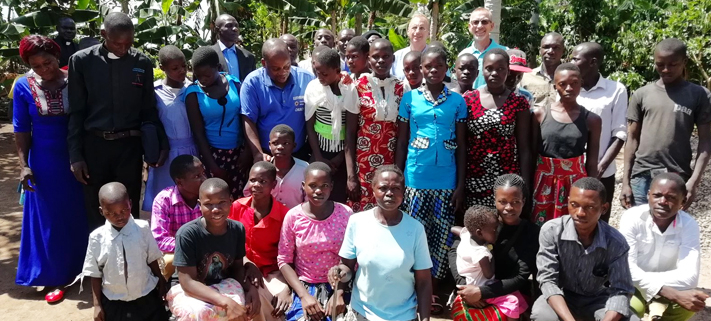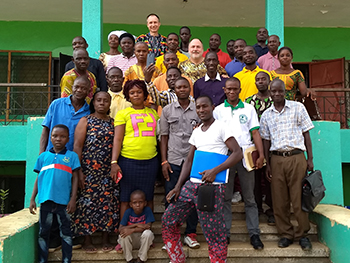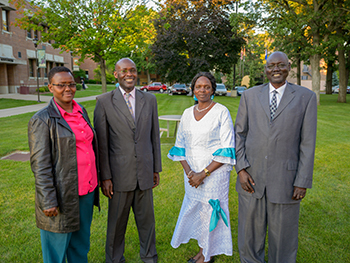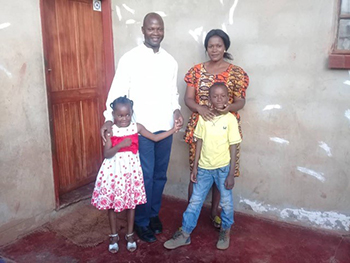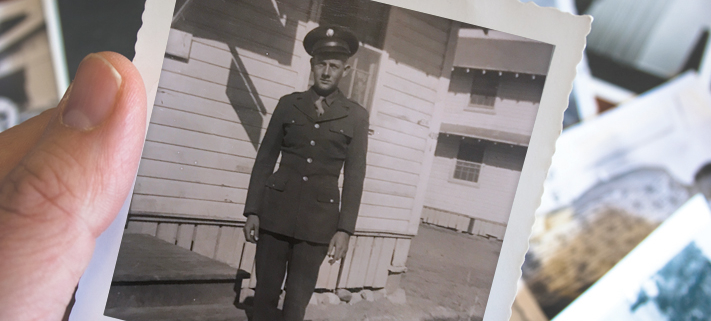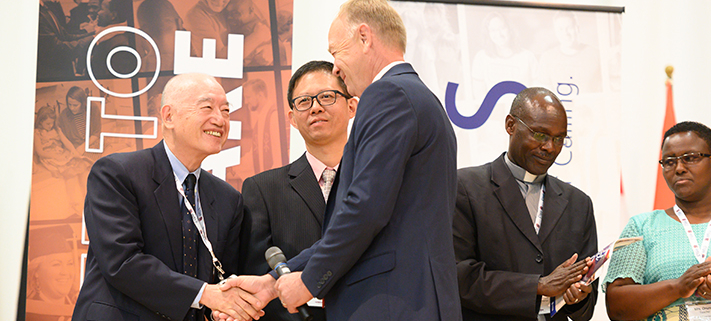Grieving in hope
Brothers and sisters, we do not want you to be uninformed about those who sleep in death, so that you do not grieve like the rest of mankind, who have no hope. 1 Thessalonians 4:13
Joel C. Seifert
Are we forgetting how to grieve? Maybe you’ve seen some subtle signs. Check your friends’ social media accounts, and it seems like no one is touched by sorrow. More and more, instead of gathering to grieve at funerals, we meet for “celebrations of life.”
Those things aren’t wrong in and of themselves—it’s good to share joys and celebrate the lives of those we love. But grief has an important role in our lives of faith too.
Grief reminds us that death isn’t normal
Christians in Thessalonica were hurting. They knew that Jesus would return to take them home, but while they waited for that day, some of their believing loved ones died. They worried that perhaps these believers who died before Jesus’ return would miss out on eternal life. They thought they might not see them again.
It’s what Paul doesn’t tell them that’s so striking. He doesn’t tell them, “Don’t be sad!” Grief is a fitting reaction to suffering and death. The Bible tells us of believing men and women who mourned and wept when their loved ones left this life.
That’s because true grief is an act of faith. It’s a recognition that death isn’t normal and that God didn’t design this world so that children should bury their parents or more heartbreaking yet, that parents should bury their children. In Eden, marriage didn’t include, “ ’Til death do us part.” Suffering and death were brought into this world through sin. When Christians grieve loss, it isn’t a weakness in their faith; it’s a faithful recognition that suffering and death are unnatural tragedies.
But the gospel gives an answer to our grief. The Thessalonians didn’t fully understand the answer yet, so Paul told them. Jesus’ victory over sin and death means the day is coming when he will take all believers—living and dead—home to be with him and each other in heaven.
In grief, we share the encouragement of the gospel
That doesn’t mean we no longer grieve. It means we grieve in hope. We grieve feeling the pain of someone missing from our lives but looking forward to the day we’ll see him or her again in heaven.
That godly grief is a rich blessing! It doesn’t just point us back to Jesus; it points us to each other too. Read Paul’s answer to those grieving Christians (1 Thessalonians 4:13-18), and you’ll notice one word that’s repeated more than any other: we. We grieve. We believe in Jesus. We may live here without our loved ones for a while, but we will be caught up together in the air with Jesus one day. And we will be with the Lord forever. God wants us to share our grief and our hope with each other.
In November, many of our churches celebrate Saints Triumphant Sunday. On that Sunday we can remember loved ones who’ve died in faith. Yes, celebrate their lives! Grieve their absence, but look forward to the day your grief dissolves in the alleluias of heaven.
And as Christmas draws near, you’ll still feel some grief. Don’t hide it; don’t grieve alone. You need not be ashamed of your sadness. Share your pain and hurt with a fellow believer so they can bear it with you, grieve with you, and comfort you as you look forward to heaven.
Contributing editor Joel Seifert is pastor at Beautiful Savior, Marietta, Georgia.
SUBMIT YOUR STORY
Do you have a manuscript, idea, or story from your own life you’d like to share for use in Forward in Christ or on wels.net? Use our online form to share it to our editorial office for consideration.
SUBSCRIBE TO FORWARD IN CHRIST
Get inspirational stories, spiritual help, and synod news from Forward in Christ every month. Print and digital subscriptions are available from Northwestern Publishing House.
Author: Joel C. Seifert
Volume 106, Number 11
Issue: November 2019
Copyrighted by WELS Forward in Christ © 2021
Forward in Christ grants permission for any original article (not a reprint) to be printed for use in a WELS church, school, or organization, provided that it is distributed free and indicate Forward in Christ as the source. Images may not be reproduced except in the context of its article. Contact us




